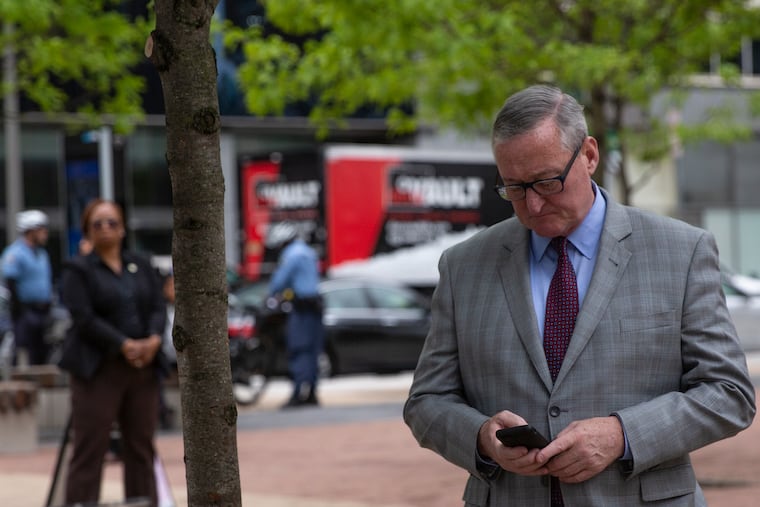Philadelphia’s new cell phone policy an example of patching vulnerabilities after they happen instead of before | Editorial
The city needs to be more forward looking about technology — and the problems that come with technological advances.

Last week, the City issued a new policy discouraging employees from using text messaging or other informal communication channels like instant messaging platforms — for any government related business. According to the policy, the only appropriate uses for text messaging is for minor updates, such as “be there in five minutes.” Those type of text messages, called transitory communication, can be deleted. The policy comes following reporting by The Inquirer’s Claudia Vargas that Mayor Jim Kenney uses his personal phone to conduct city business — and deletes text messages against the state’s Right-to-Know law.
A few potential issues arise with this development. The first concern is that the policy will make doing city business less efficient. Informal messaging platforms like Slack and Skype for Business are convenient and make sharing information easier. The new policy has a potential of adding cumbersome steps for city employees that make their work habits more complicated or time-consuming.
Another concern is that the policy leaves an opening for information to be deleted under the guise of being transitory communications when it is not. For example, when The Inquirer requested the text messages of Gov. Wolf, the state didn’t turn over any messages, claiming they were all transitory. That seems convenient. Also, occasionally transitory communications could be of public interest. Is a text message saying that someone is joining a meeting last minute “transitory”? Knowing who was in the room when policy is crafted can be extremely important, as we recently learned early this year when federal prosecutors connected the origins of the beverage tax to a feud between unions.
The perfect illustration of the potential confusion over the difference between substantive messages and transitory communications: A staffer in the Mayor’s Office was assigned as Kenney’s phone’s babysitter, reviewing all of the mayor’s messages and deciding which are transitory and can be deleted and which are not.
The biggest concern actually has nothing to do with the policy itself but with how it came to be: a mini-scandal. When it comes to technology, the city seems to be responding to issues that arise instead of strategically trying to anticipate problems. The use of personal devices and informal communications is not only a potential Right-to-Know problem, it is a potential cyber and information security problem. More than a decade after the release of the first iPhone, we have to do better.
Granted, technology changes constantly — and rapidly. And Philadelphia is not the only city struggling with keeping up. But the city needs to be more forward looking about technology and the problems that come with technological advances. We saw that with the recent virus that shutdown the network of the Philadelphia courts system for weeks. The controller is reviewing the City’s information system’s infrastructure and resilience at the request of City Council.
While the City was right to formulate a new cell phone policy, the process revealed a lack of anticipation and thinking ahead. We are left wondering: Does all change have to come about because a controversy happens first?